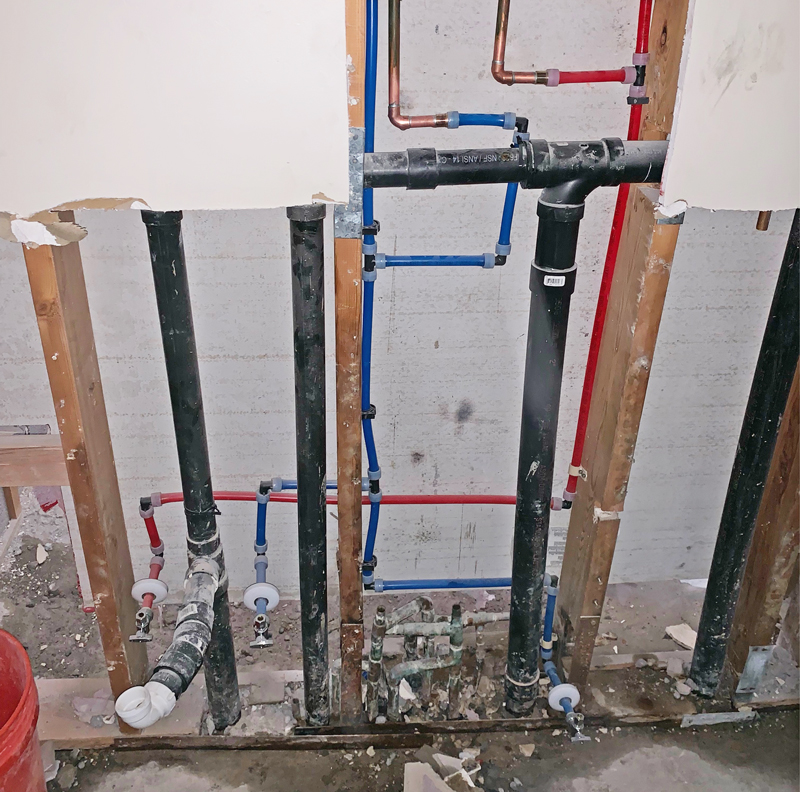
When the pipes in your home have outlived their lifespan, you’ll start to notice consistent plumbing issues like low water pressure, rusty water, or leaks. These are signs that you might need to repipe your house, a process that involves completely replacing the existing plumbing system.
Why Repiping is Essential
Over time, old pipes can corrode, rust, and decay, leading to a myriad of problems. If not addressed timely, worn-out plumbing can cause water damage to your home and belongings, necessitating expensive repairs. This article provides an in-depth look into the potential problems and the need for repiping.
In addition to preventing water damage, repiping can also increase your home’s value, provide you with cleaner water, improve your water pressure, and reduce your plumbing issues, saving you time and money on repairs in the long run.
Materials Used in Repiping
When repiping a house, it’s crucial to choose the right material. Common materials include:
- PEX (Cross-linked Polyethylene):
- Pros: Flexible, less likely to leak, resistant to scale and chlorine, and less expensive. Long manufacturer warranty.
- Cons: Cannot be used outdoors as it’s sensitive to UV light.
- Learn more about PEX piping here.
- Copper:
- Pros: Longevity, resists corrosion, and can be used outdoors.
- Cons: More expensive and requires soldering.
Each material has its advantages and disadvantages, so it’s essential to consult a plumbing professional to determine the best option for your home.
The Repiping Process
Repiping a house is a significant project that involves removing and replacing old plumbing pipes. The steps generally include:
- Inspection:
- A professional plumber inspects the plumbing system to assess the scope of the work.
- Preparation:
- The areas where work will be done are prepped to minimize damage to walls, floors, and other parts of the house.
- Removal of Old Pipes:
- Old pipes are cut out and properly discarded.
- Installation of New Pipes:
- New pipes are installed, ensuring they meet the local plumbing codes.
- Inspection and Testing:
- The new plumbing system is inspected and tested for leaks and other issues.
- Patch-Up Work:
- Walls, floors, and ceilings are repaired and restored.
Costs and Considerations
The cost of repiping your home can vary greatly based on factors like the size of your home, the materials used, and labor costs. It’s essential to get detailed estimates from professional plumbers to understand the total cost and the time required for the project.
When planning for repiping, consider the following:
- Schedule the work for a convenient time as water will be shut off during the project.
- Understand the warranty terms on the materials and labor.
- Ensure the plumber is licensed, insured, and experienced in repiping.
Conclusion
Repiping is an essential home improvement project that can enhance your quality of life, prevent water damage, and increase the value of your home. It’s a significant investment and should be handled by experienced professionals to ensure the job is done correctly.
In Ventura County, trust the experts at Quest Leak Detection for all your repiping needs. Our team of skilled professionals will make sure your repiping project is handled with the utmost care, delivering exceptional results to give you peace of mind and a reliable plumbing system for years to come.

